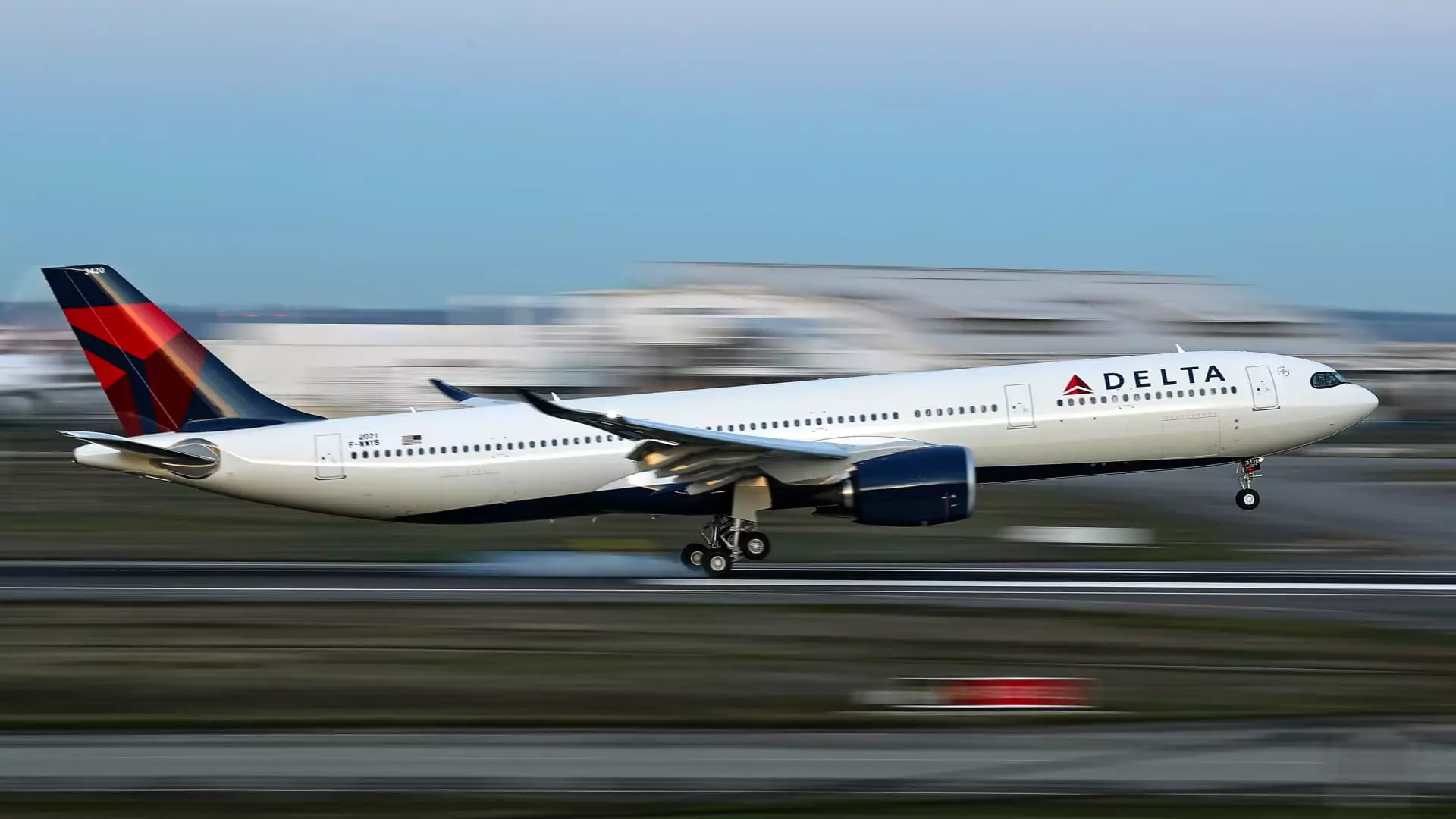Delta Air Lines recently forecasted record revenue for the third quarter, thanks to booming summer travel demand. However, the company fell short of analysts’ estimates due to increasing competition and fare discounts resulting from expanded flights. The company anticipated sales to rise by up to 4%, below the 5.8% growth estimated by analysts. Additionally, Delta predicted adjusted earnings per share of $1.70 to $2, falling short of the $2.05-a-share estimation by analysts. This shortfall led to a 9% drop in Delta’s shares during premarket trading, indicating investor concern about the airline’s performance compared to industry expectations.
Delta’s challenges reflect broader issues within the U.S. airline industry, characterized by packed planes but dwindling profits due to rising costs and increased capacity affecting fare prices. Despite being one of the most profitable carriers, Delta’s recent report indicates potential struggles for competitors, particularly those focused on the oversupplied U.S. air travel market. The industry is experiencing heightened competition, with airlines like United, striving to match Delta’s profitability by adding premium seats that generate more revenue. Analysts show confidence in Delta and United, compared to other U.S. airlines, due to their performance and attempts to adapt to market dynamics.
In the second quarter, Delta missed Wall Street expectations with adjusted earnings per share of $2.36, compared to the expected $2.36. The adjusted revenue of $15.41 billion also fell short of the estimated $15.45 billion. Despite a 5.4% increase in adjusted revenue from last year, Delta reported a drop in net income by almost 30% to $1.31 billion. Operating expenses surged by 10% from the previous year. CEO Ed Bastian acknowledged challenges in the domestic marketplace due to lowered fare discounting but expressed optimism about balancing capacity with demand towards the end of the summer.
Delta’s performance reflects broader challenges in the airline industry related to fare discounts, increased capacity, and growing competition. The company aims to counter these challenges by focusing on corporate travel growth, with expectations of maintaining or increasing corporate travel spending. Delta plans to expand flying capacity by 5% to 6% in the third quarter, at a more moderate pace compared to the previous quarter’s 8% increase. The company anticipates unit revenues to turn positive in September and remains optimistic about the future despite short-term setbacks.
Delta’s revenue diversification strategy, including a strong presence in premium seats and partnerships, helps insulate the company from industry overcapacity challenges. Premium ticket sales increased by 10% in the second quarter, generating $5.6 billion, while coach ticket revenues rose slightly to approximately $6.7 billion. The American Express credit card deal brought in $1.9 billion, marking a 9% increase from the previous year. These revenue sources position Delta well in the industry, allowing the company to maintain profitability amidst market fluctuations. Despite facing headwinds, Delta reaffirmed its full-year earnings forecast and free cash flow projection, indicating a confidence in its long-term prospects.
Delta Air Lines’ recent performance highlights the challenges facing the U.S. airline industry, characterized by intense competition, fare discounts, and increased capacity. While the company faced setbacks in meeting analysts’ estimates, its strategic focus on revenue diversification and market positioning provides a foundation for future growth. By adapting to evolving market conditions and leveraging its competitive advantages, Delta remains a key player in the airline industry despite short-term fluctuations.

Leave a Reply